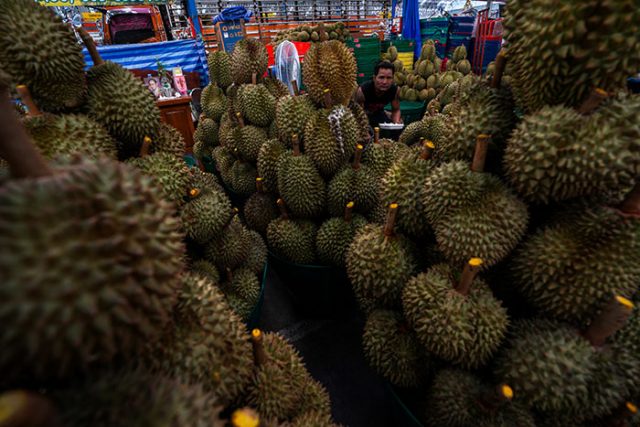
News of a university evacuation in Melbourne, Australia caused by the odor emitted by a rotting durian fruit has united Asians in defending the region’s pungent but prized produce.
First fainting in 23C weather and now this???????? I honestly can’t believe white people STILL think they’re the strongest race https://t.co/LeRh3AzS5R
— mandy
(@delabaisse) May 1, 2018
Around 500 students of the Royal Melbourne Institute of Technology University were evacuated by authorities after reports of a foul stench that was suspected to be caused by chemical hazard or gas leak.
Fire authorities would later find out while surveying school premises that the source of the smell was a durian fruit left rotting in a cupboard.
Fans of the delicacy took exception to the university’s reaction.
1) this is the most white people reaction to durian ever ??
2) this is why hotels tell you not to bring it into the room, lest you freak out everyone else
3) the real crime is someone leaving durian uneaten to the point where it could rot ? https://t.co/E7kRlxJLtY— Susan Tsang (@batgirl_susan) April 29, 2018
The science behind the smell
Some big names in the world of culinary criticism have in fact taken note of Asia’s “King of fruits.”
Renowned culinary figure Anthony Bourdain is reportedly a fan, despite having used strong imagery in describing its scent.
Another authority in gastronomic matters, food writer Richard Sterling, has been quoted to have given an expletive-laden description of the durian’s smell.
Andrew Zimmern, host of “Bizarre Foods,” a show dedicated to exotic food around the world, gagged when he faced the legend durian.
In 2012, the Smithsonian explored the science behind the smell. It pointed to a study by Asian scientists that uncovered at least 50 different compounds present in its chemical makeup. Each compound was associated with at least one odor. In other words, the durian’s overpowering smell may just be the product of several, clashing odors.
The study published by the Journal of Agricultural and Food Chemistry can be found here.
Just last year, Popular Science reported on a study conducted by Singaporean scientists exploring the genetic makeup of the durian. Their findings revealed that the durian has a familiar but unlikely ancestor: the cacao plant.
“It’s almost like you cloned yourself, and you have one copy of yourself go and do the housework and cleaning and so forth so the other one can go on and do all sorts of different things,” said Patrick Tan, author of the study while describing the surprising genetic similarities between cacao and durian.
However, the durian evolved in such a way that it made additional copies of genes that created sulfuric compounds. It’s these compounds, according to the scientist, that cause the durian’s overpowering smell.
A delicacy and a luxury
But now I know that you are a real #Asian if you queue all the way only in order to get a piece from the #Durian fruit. ? pic.twitter.com/FtvrnirJBZ
— Philipp Rösler (@philipproesler) May 1, 2018
Even as many continue to grimace at its smell, the durian will always be a source of pleasure for its loyal fanbase, especially in Asia.
The durian’s considerably high price is enough proof of persistent demand for the fruit.
According to reports from Davao last year, where durian can easily be found, the fruit may cost anywhere between P60 to P100 per kilo, and even higher during the city’s Kadayawan festival.
Singapore’s Michelin Guide recently released a guide to finding the best and most affordable durian in the country. Certain kinds of durian apparently cost up to SGD $26, or P1,014 per kilogram.





